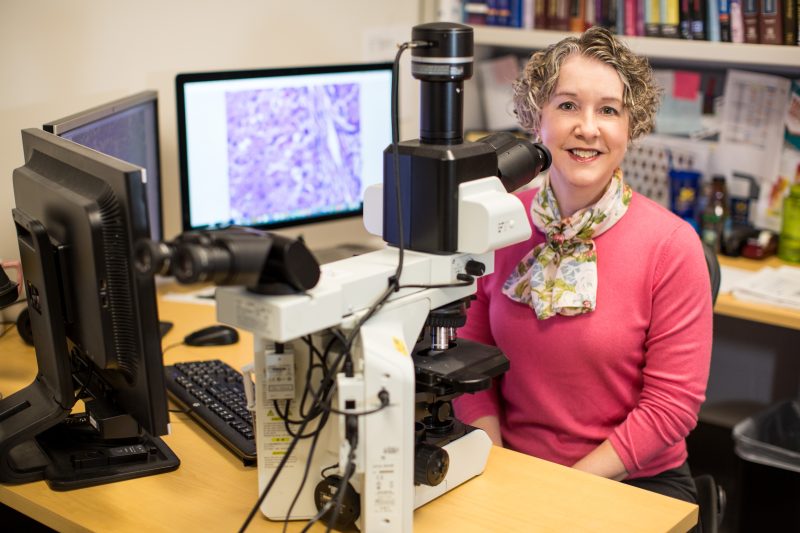PUBLISHED: 29th September 2022

Summary by Laura W. Lamps, MD
This interesting webinar, hosted by the Breast Cancer Research Center, featured two speakers: Dr. Traci Balboni, Professor of Radiation Oncology at Harvard Medical School and Director of the Radiation Oncology Program, and the Reverend Dr. Saneta Maiko, faculty at the C. Dan Evans Center for Spiritual and Religious Values at Indiana University.
Dr. Balboni opened by giving a brief history of spirituality and medicine. Prior to the 1700s, most hospitals were run by religious groups or located within abbeys or monasteries, so there was a fair amount of integration between spirituality and medicine. Western countries then became much more focused on the scientific method, physical observations of anatomy and physiology and things that could be seen and proven. At the same time, the connection between body and spirit was de-emphasized in the field of medicine. In Eastern medicine, however, body and spirit have remained more integrated.
Dr. Balboni, a widely published expert in the area of spiritual care in cancer patients, quoted a patient of hers who said that when she came to the hospital, all anybody saw was a body full of tumors that were killing her; they did not see her as a whole person. Dr. Balboni then asked how we as providers reintegrate spirituality into cancer care because very compelling evidence shows that it absolutely affects care and outcomes in cancer patients.
Some of the research that was presented highlighted this in detail. Patients who feel supported spiritually by their medical teams are less likely to undergo aggressive interventions, and more likely to engage hospice care rather than die in the ICU. Cancer patients who are at the end of their lives, when asked to rank what is important to them at that time, put relationships with family, freedom from pain and being at peace with God as top priorities. Many patients rely extensively on their religious faith and/or religious communities or other spiritual practices, during their cancer care, yet this is only rarely addressed or discussed when patients meet with medical providers.
Dr. Balboni and Dr. Maiko then transitioned into how we as providers can most effectively address spiritual care in the context of cancer care. They stressed that obtaining a spiritual history was as important a part of the social history as family support, drinking or smoking, or depression screening. Asking about a patient’s religious or spiritual life lets them know that you care about them as a whole person and do not see them as just a body full of tumors. In addition, the information a provider gathers can then guide the patient to resources that might help support them spiritually as they undergo treatments. Dr. Maiko discussed the details of chaplain programs and how chaplains are spiritual “specialists” who can be our care partners as we try to take care of the whole patient.
The discussion of “spiritual history taking” was particularly interesting, because the speakers discussed it just as any other aspect of history taking, and emphasized the listening aspect. I may not smoke, but I can listen to your smoking history or struggles with addiction and help you with resources if you want them. I may not be spiritual or religious, but I can listen to you talk about your religion or spirituality, and help you find resources if you need them. The emphasis on listening, regardless of one’s own personal background, helped me understand how a provider might more easily navigate a conversation that many might find uncomfortable.
The webinar ended with a reminder that spiritual care for the majority of cancer patients is inadequate, even though many cancer patients rely heavily on religion or spiritual pursuits for support during their illnesses. The speakers challenged us as providers to improve our efforts to integrate the spiritual and physical aspects of patient care to help create better overall experiences and outcomes.
Laura Lamps is a BRCA2 mutation carrier, previvor, dog enthusiast and yogi. She is originally from Auburn, Alabama, and is now the Director of Gastrointestinal Pathology and Assistant Chair for Faculty and Staff Development at the University of Michigan School of Medicine.
POSTED IN: XRAY , Emotional Health And Well Being , Quality Of Life , Hereditary Cancer - General
TAGS: Mental Health , Xray , Health
1 Comments
October 30, 2023
Wow, this is nice, I never heard about this. Cancer care can done spirituality too.
Cuddlemcch
Reply